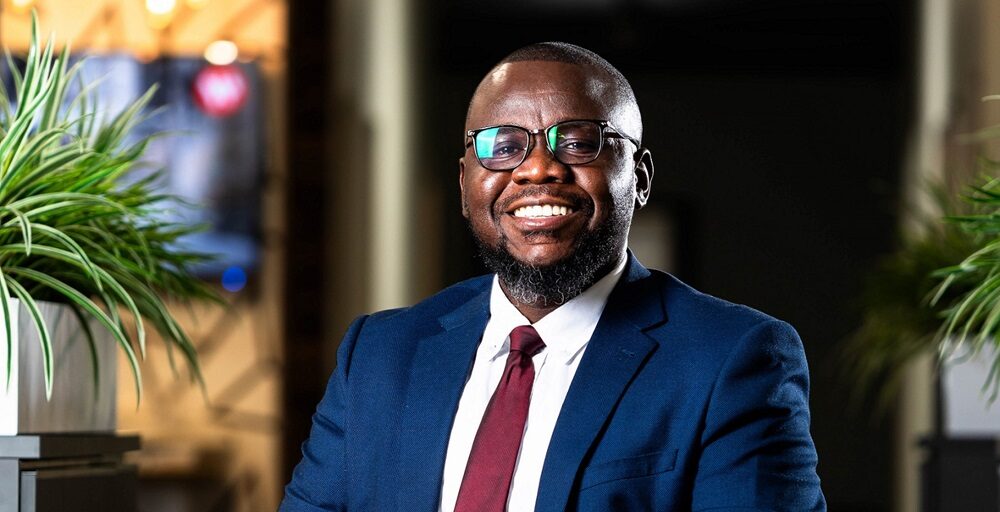Perspective. It is perhaps the one thing that gives eagles an evolutionary advantage over their prey. Besides their ferocious talons and superior flight, an eagle’s vision is up to eight times stronger than that of an average human being permitting it to see over three kilometers away.
An eagle’s viewpoint is the key factor that has allowed it to be crowned the king of the skies and it is upon this philosophical rock that Heikky S. Katti has built his house, Namibia Ceramics through his holding company Punto De Vue Holdings (an Italian translation for Viewpoint).
Namibia Ceramics is a manufacturing initiative that Katti conceived in early 2016 to setup the first ever ceramic plant in Namibia. After construction begins later this year [2018], this will see Namibia being able to produce ceramic products such as floor and wall tiles from locally available industrial minerals such as clay and feldspar. According to the quantity surveyor’s estimates the project will cost N$185m once complete, generating N$90m annually and creating at least 150 permanent jobs along the whole value chain which includes mining, processing, logistics, marketing, and sales.

The project was initially planned for Rundu but upon doing a thorough due diligence on the quality and locality of raw materials, production plans have since moved to Tsumeb. “It’s a big vision for the country that we have been developing through my company Punto De Vue Holdings together with the Development Bank of Namibia and our equity partner, Konigstein Capital, and our Italian technical partner and equipment supplier, SACMI, to bring it to full bankability,” shares Katti.
Frustrated by the reality that Namibia currently imports 100% of its ceramic tile, which swells to 2.2 million square metres annually, Katti saw a gap in the market and was compelled by foresight to enlist the help of his childhood friend, Titus Hidishange. Together they saved up more than N$300,000 from their own salaries over a two-year period for the project. All this at age 28. These funds were used for Environmental Impact Assessments, for the design of the building of the plant and a 2016 business trip to SACMI in Italy. Namibia Ceramics will source equipment from SACMI and they will give them after-sales technical support, including training on site at Tsumeb and in Italy.
In November last year, Namibia Ceramic won the Development Bank of Namibia (DBN) 2017 Innovation Award that came with N$500,000. “Namibia Ceramics will add value to Namibian clay, quartz and feldspar, by manufacturing tiles, locally. In addition to import substitution and improved product availability with a reduced transport cost,” said a DBN spokesperson, last year. The N$500,000 prize assisted in ticking off several boxes which Katti and his team initially could not afford to do out of their own pockets. For example, immediately after winning the award, they decided together with DBN to re-run the quality tests on the raw materials with a more
reputable lab.

They were able to carry out this exercise through SACMI’s laboratory in Italy within a short period of time because the funds were available. “There are so many hidden costs in preparing projects of this magnitude such as hiring of equipment and manpower to collect samples from the field, and also transport and accommodation cost. The award also gave Namibia Ceramics identity and credibility as a brand and for that reason we were able to do things much faster because people were now interested in hearing our story. We have since been allocated industrial land (5000 m2) by the Tsumeb Municipality on a very good price. We have also managed to source a factory manager from an existing ceramic plant in South Africa. We flew him in a few weeks back to come and view the town of Tsumeb and he is willing to relocate to Namibia to come manage the plant for us,” Katti says.
Just recently, DBN commissioned an independent study of the market to re-affirm Namibia Ceramic’s assumptions and also to establish whether there is a market gap in the neighbouring countries for export purposes. With these milestones, Katti and his Namibia Ceramic team have not rested on their laurels. In fact, their viewpoint has only sharpened. “Our focus has really been on preparing the project to full bankability in order for the investors to release the funds so that we can start with construction. We thought this would happen earlier during the year but we have since learned that there were still a few key areas that needed to be addressed. I have confidence however that before end of this year we will be able to start with construction,” says Katti.
A Mining Engineer by profession, he graduated in 2011 as a Namdeb Bursar at University of Witwatersrand in Johannesburg, South Africa. After graduation, he worked at Namdeb Diamond Corporation as a Trainee Mining Engineer. This was a three-year training program where, along with other fellow graduates he underwent training and tests that evaluated whether they had the necessary leadership skills to perform in the corporate world. Currently he is an Explosives Engineer for Sasol’s Namibian branch.
Sasol is an integrated energy and chemical company based in Sandton, South Africa. The company was formed in 1950 in Sasolburg, South Africa and built on processes that were first developed by German chemists and engineers in the early 1900s. “The biggest challenge for me has really been having to balance my energy between business and my 8 – 5 job. But I’m so grateful that my employer, Sasol, and specifically my manager Mr Tobie Van Der Linde, saw so much potential in me and chose to support my vision in terms of time
and resources. There was even a point last year when I ran out of leave days because of business meetings but my manager still allowed me to attend meetings provided that my job at the mine is in order. This is what you get when you have patriotic people working together,” he says.
Patriotism, faith and the audacity to be different have been Katti’s recipe to success. He believes a businessman or businesswoman needs to be able to take calculated risks even beyond that, a morsel of faith to leap into the unknown. Namibia Ceramics also fits in very well with the SADC Industrialization Strategy and Roadmap (2015 – 2063), which highlights the urgent need for the region to leverage its abundant and diverse resources to accelerate industrialization through beneficiation and value addition (manufacturing).
His hope is that this project will inspire more young people to come forth in the spirit of patriotism and help develop the country with the knowledge that they have acquired from school and not just become mere job seekers. “Dare to be different, do not be afraid to be controversial like the billionaire and US President Donald Trump. If you are to achieve something extraordinary in this world you need to embrace your uniqueness, do not kill your purpose by trying to fit in when God has already set you apart, do not conform!” he maintains.







